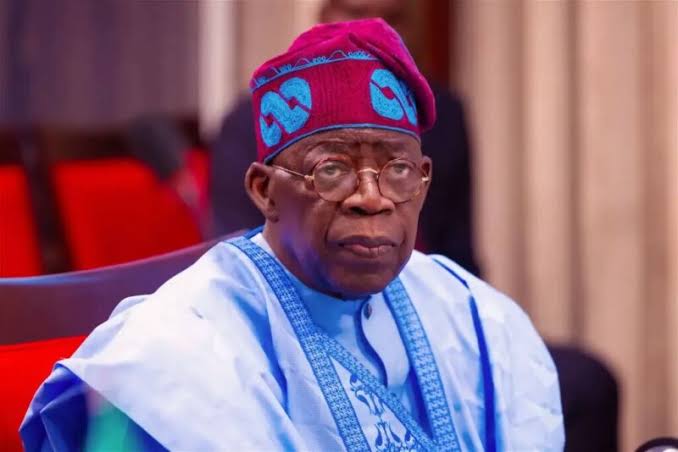Is Tinubu’s reelection more important than Nigeria’s economy?

10 things to know about Saint Lucia amid Tinubu’s visit.
The popular Nigerian political proverb “for every politician, the next election is closer than the last.” This perhaps has begun to manifest barely two years after President Bola Tinubu took over the piloting the affairs of Nigeria. As Nigeria grapples with soaring inflation, crumbling infrastructure, and a youth population desperate for opportunity, a troubling question arises: is Tinubu’s reelection bid taking importance over the urgent need to develop the economy? With the 2027 elections already casting a shadow over governance, there’s growing concern that political survival is above transformative economic reform. While Tinubu’s supporters argue his leadership is essential for continuity, prioritizing reelection over economic development risks deepening Nigeria’s crises and excluding citizens desperate for tangible progress.
To make the reasons clear on this matter, Nigeria’s economy is in a terrible situation that according to many requires divine intervention. Inflation hovers around 30%, food prices have skyrocketed, although some recent reports suggest fall in prices, and the naira’s value continues to depreciate despite reforms like the fuel subsidy removal. Unemployment, particularly among young people has become the bedrock of insecurity, with over 60% of Nigerians living in multidimensional poverty. These are not just myths, fairy tales, or abstract statistics, they are the living realities of millions who struggle to afford the basics like rice, transport, or electricity. As expected of the Nigerian government to focus intentionally on job creation, industrialization, and stabilizing the currency. Yet, those occupying political positions seem increasingly preoccupied with securing Tinubu’s second term, diverting their energy and resources away from these pressing needs.
Tinubu’s camp may argue that his reelection is synonymous with economic progress. They point to his “Renewed Hope” agenda reforms aimed at reducing inefficiencies, attracting foreign investment, and boosting agriculture as evidence of a long-term vision that requires his continued leadership. Well, I give some credit to that, considering the fact that governance in Nigeria often suffers from policy reversals when administrations change. The subsidy removal, for instance, was a bold move that, in theory, could free up funds for infrastructure and social programs. But the reality is sore, gloomy, and unimaginable. The promised palliatives have been a flash in the pan, and the economic pain has left many Nigerians to doubt government’s plans. If Tinubu’s team is banking on these reforms to win votes, then I say that they are only looking at the wrong tree for fruits, voters want results now, they want it fast, and not promises to possibly happen in another four years.
READ ALSO
Atiku, Ohanaeze, Afenifere… critics and supporters of Tinubu’s tax reform bill
Reno Omokri: How President Tinubu can finish what Chief Abiola started
Political parties: A special purpose vehicle for Nigerian politicians
Meanwhile, the Nigerian political scene has a solid history of political actors abandoning ship when their interest do not align. We have seen occasionally in the media about high-profile defections to strategic appointments, the administration’s actions suggest a government more focused on holding on to power than delivering dividends. State-level projects, like Lagos’ urban renewal tied to Tinubu’s political base, often seem designed to shine his image rather than address national priorities. The daily scenes are terrible: while Nigerians queue for hours to buy fuel, party loyalists are already plotting campaign strategies. This misplacement of national priorities only increases the perception that Tinubu’s reelection matters more to the elite than the survival of ordinary citizens.
On a balanced point of view, political survival and economic development are mutually necessary. A leader needs a mandate to govern effectively, and Tinubu’s camp might argue that securing 2027 ensures the stability needed for tough reforms to bear fruit. But this logic fails, when governance becomes only drama or when policies are rolled out to score points rather than solve real problems. Take the CNG vehicle initiative, which was claimed to be a solution to high fuel costs. It’s a good idea only on paper and speech at press conferences, but its practical steps has made it a fallacy, with limited infrastructure and public awareness. Such half-baked efforts feel like campaign promises disguised as policy, eroding public trust in the government’s priorities.
Do not misunderstand me for the opinion that Tinubu should abandon politics altogether or take me as a member of the Obidient movement, which clearly I am not one, just a voice for the many voiceless Nigerians demanding proper prioritization of economic development by the government. Let me say that elections are the lifeblood of democracy important but chasing reelection now at the expense of immediate economic relief is a dangerous gamble. The Nigerian people are demanding bold, selfless leadership, not a government distracted by party gimmicks and slogans. Imagine the impact if the same energy spent on political rallies went into fixing power grids, incentives for local manufacturers, or reforming education to prepare youths for a digital economy. These are the wins that would immediately improve Tinubu’s legacy and to bear in mind that voters reward leaders who deliver, not those who campaign hardest or earliest.
There exist more to be discussed in this piece but but let me pump the brakes, Nigeria cannot afford to prioritize Tinubu’s reelection over economic development. The hunger, joblessness, and insecurity plaguing the nation demand urgent action, not political gamesmanship. If Tinubu wants a second term, the path is clear: focus on lifting Nigerians out of poverty, stabilizing the economy, and building a nation that works. Reelection will follow naturally or it will not work. But gambling on power over progress is a another example of a mirage, and the Nigerian people deserve better than that.

